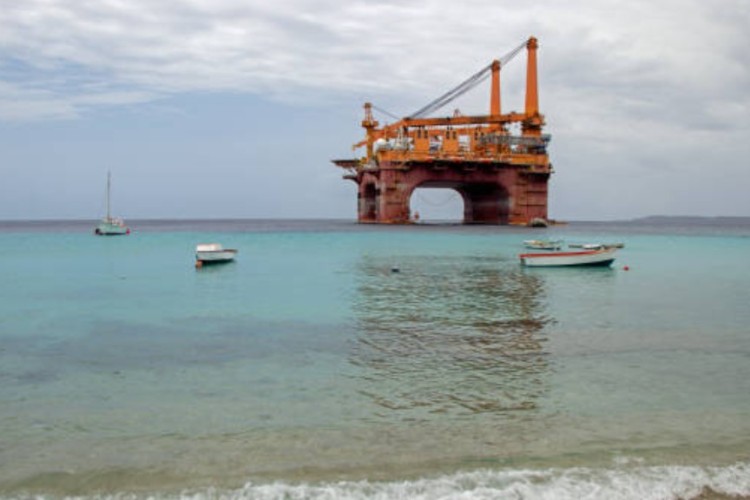
India is searching for ways to meet rising energy demand while reducing its dependence on imports. As one of the world’s largest energy consumers, securing reliable supplies has become a central priority. In this context, the government has launched the National Deepwater Exploration Mission, aimed at tapping oil and gas reserves in deepwater and ultra-deepwater regions, notably off the Andhra coast and in the Andaman-Nicobar basin.
With the country importing 88% of its crude oil and about half its natural gas, the mission is a bid for energy self-reliance. It carries both economic and strategic weight: reducing the import bill, stabilising fuel prices, and strengthening national security.
READ | Corporate earnings and profits mask consumption slowdown
Funding and exploration push
The mission envisages the creation of a dedicated corpus fund to support strategic oil and gas exploration. Oil India Ltd (OIL) is already mapping areas with potential for productivity gains, focusing on cost optimisation. The contours of the corpus—its size and funding sources—remain under discussion, but OIL has secured exploration rights over 40,000 square kilometres across the Mahanadi and Krishna-Godavari basins. Seismic 2D and 3D surveys are expected to begin shortly.
This effort builds on a broader policy shift. The Modi government has expanded exploration areas to 0.38 million square kilometres since 2014, compared to just 82,327 square kilometres in the preceding five years. The Open Acreage Licensing Policy (OALP) and recent amendments to the Oilfields Act have opened fresh opportunities. The current OALP-X round, offering 25 blocks in the Andaman Basin, could draw global capital and expertise.
The economics of import dependence
India’s heavy reliance on imported fuel has long strained the economy, with billions spent annually on crude oil and natural gas. The Prime Minister has argued that this money could otherwise finance anti-poverty programmes, support farmers, or fund rural infrastructure. Imports of petrol, diesel, and natural gas—vital for electricity, fertilisers, and transport—are a fiscal burden.
Reducing this dependency is therefore not just an economic imperative but a matter of national security. Domestic oil and gas output, if raised meaningfully, could cushion consumers from global price shocks.
The promise of the Andaman basin
The Andaman-Nicobar basin has emerged as a focal point because of its geological similarities with proven petroleum systems in Myanmar and North Sumatra. Nearly 1 million square kilometres of previously restricted “No-Go” areas are being opened for exploration, including parts of this basin. Oil Minister Hardeep Singh Puri has emphasised the region’s potential, arguing that a breakthrough would reduce imports, create jobs, and bolster energy security.
This builds on 52 new discoveries made in the last five years—66 offshore since 2014—demonstrating the promise of India’s under-explored basins.
The deepwater mission aligns with India’s broader blue economy initiatives. In February, the Ministry of Earth Sciences highlighted deep-sea exploration not only for hydrocarbons but also for biodiversity, mineral resources, and oceanographic research. These efforts could spur innovation in underwater engineering, asset inspection, and marine technologies, while also contributing to the National Critical Minerals Mission, which plans exploration at 1,200 sites across the country.
Deepwater exploration: Risks and constraints
Despite the ambition, challenges loom large. Most of India’s major oil and gas finds—such as Reliance’s KG-D6 and ONGC’s KG-DWN-98/2—date from before 2014. Since then, exploration has slowed due to geological complexity and restricted access. The creation of a dedicated corpus is intended to revive momentum.
Yet, deepwater exploration carries risks. Technical complexity demands advanced technology and high capital outlay. Environmental concerns, especially in sensitive areas like the Andaman Sea, must be addressed. Oil spills or ecological disruption could prove costly. The government has signalled that the fund will back cutting-edge technologies and sustainable practices, but translating intent into safe practice remains the test.
India should prioritise renewables instead of locking into fossil fuels. The government’s position is that oil and gas will remain indispensable for decades, even as the shift to clean energy accelerates. Deepwater exploration, therefore, is seen as a bridge—buying time for renewables to scale without constraining economic growth.
If executed well, the National Deepwater Exploration Mission could mark a turning point. It will not end India’s dependence on imports overnight, but it can redefine the country’s energy trajectory, striking a pragmatic balance between self-reliance, security, and sustainability.
